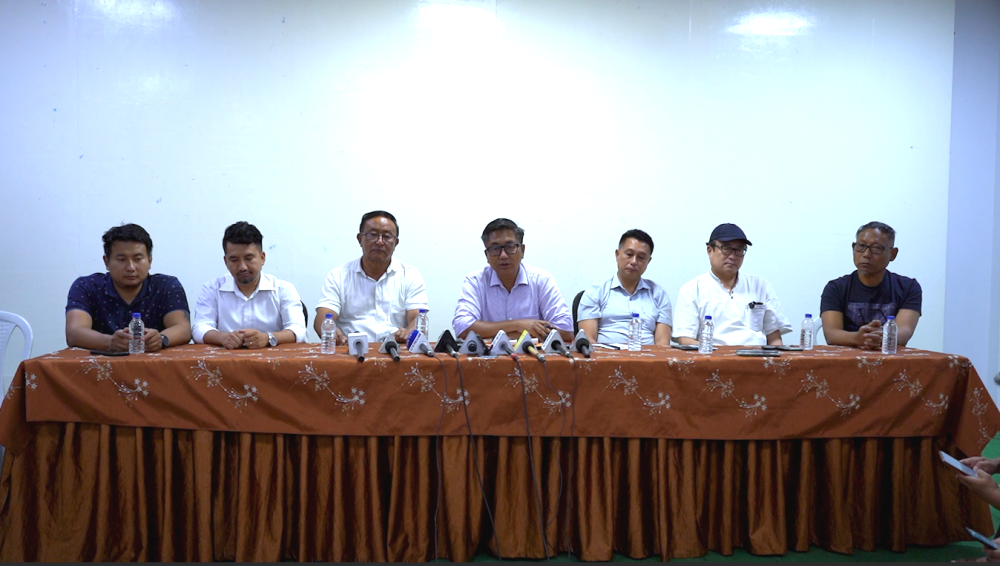-

CNCCI officials during a press briefing on Monday. (EM Images)
- DIMAPUR — After launching its ‘indefinite
voluntary shutdown’ of businesses in nine districts from Monday, the
Confederation of Nagaland Chamber of Commerce and Industry (CNCCI) officially
called off the shutdown at 6 pm on the same day.
- The decision comes following a written assurance from the
Nagaland government stating that the concerns raised by CNCCI about nomination
to urban local bodies would be addressed at the earliest.
- This was announced by CNCCI Chairman Dr. Khekugha Muru
during a press conference held at Hotel Saramati in Dimapur.
Related stories: Dimapur markets deserted as CNCCI-led shutdown begins across nine districts
Wokha businesses shut down as chamber of commerce protests against government
- According to Muru, the state government has assured the
confederation that the issue will be taken up urgently, potentially in the
first Cabinet meeting and, if necessary, during the upcoming Assembly session.
- He expressed confidence that their demands will be resolved
within the next few months.
- Muru also took the opportunity to apologise to the public
and consumers for any inconvenience caused during the shutdown. “It was never
our intention to create disruption. Our efforts were aimed not just at
supporting the business community, but ultimately at benefiting consumers by
advocating for fair and inclusive representation,” he added.
